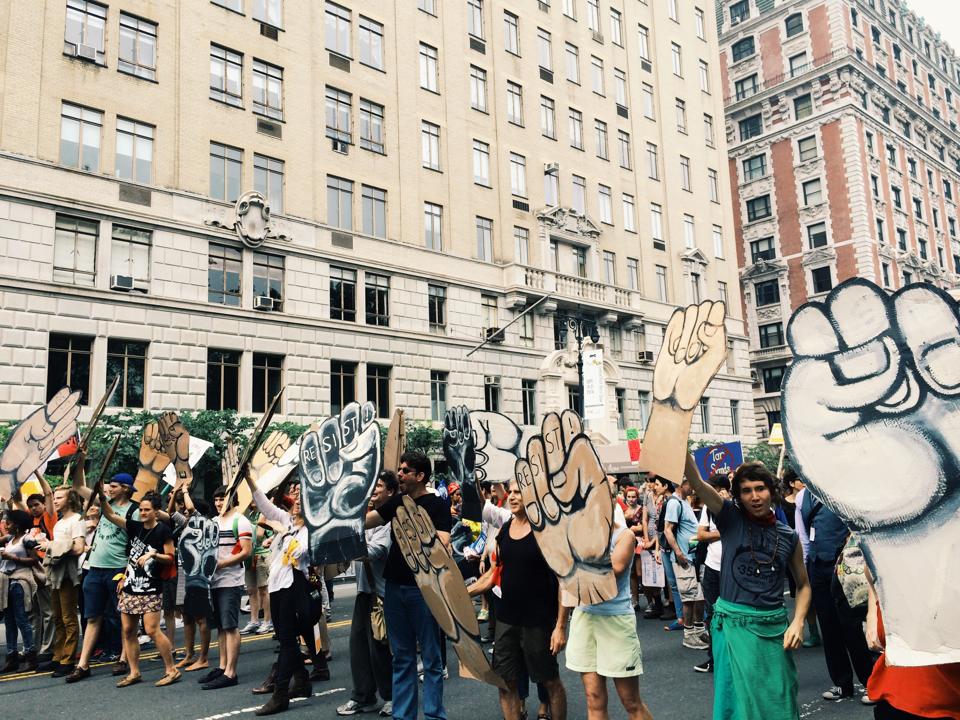Six weeks after the People’s Climate March, one feeling in particular has stuck with me: shame. I walked with many fellow Canadians in the anti-fracking and tar sands Blocs, where signs, chants, and performance art targeted Prime Minister Harper’s inaction on climate change and the Canadian government’s relationship with the oil industry.
It did feel good to walk with other Canadians — to share in a kind of pride and shame dichotomy that plagues me. In an attempt to illustrate this dichotomy, I’ll share a recent anecdote. The week before the People’s Climate March I visited Banff, Alberta, for the first time, having just travelled from Prince Edward Island. It was the most Canadian geography I had seen in such a short time period; I was struck by the vastness of Canada and the natural beauty of two very different places. I was happy to call Canada home. I was also reminded of Canada’s great potential — as an Arctic state with astounding ecological diversity and a multitude of indigenous voices and knowledge, Canada has the unique opportunity to seize both the challenges and opportunities climate change presents.
However, Canadians and our government continue to fall short on climate action, on forging cultural respect and understanding, and on affecting justice. We have fallen so short that many otherwise unlikely partners South of the border have united against Canadian policies and inaction. At the People’s Climate March I walked alongside Nebraskan farmers bearing signs excoriating Harper and TransCanada’s Keystone XL pipeline. A block ahead, a group of American performance artists danced with skeletons representing Shell, BP, Enbridge, and Koch Industries; ushering the skeletons forward was a kind of father, an architect — a massive skull with far-reaching arms, emblazoned with an oil-soaked Canadian maple leaf.
The Canadian government deserves to be targeted directly, and I was fiercely satisfied to see such a strong anti-tar sands bloc at the March. But I was, and remain, ashamed. The Harper government — and, indeed, Canadians at large, in our failure to shift political will — continue to hold our country back. We have failed to capitalize on climate change as a means to affect reconciliation and justice for the country’s Indigenous peoples and as an international leadership opportunity. Our Prime Minister snubbed the United Nations climate summit that took place two days after the March, while the Canadian government released a document that touts its commitments to “world-class scientific research” and to reducing Canada’s greenhouse gas emissions. The report is but a tiny part of the current government’s larger PR strategy, which would be a laughable farce if not for the fact that human health, dignity, and justice are at stake.
Ultimately, the impacts of climate change on our common environment are a community building force. Woven into the myriad of potential solutions and competing priorities is the story of a single issue –climate change — that inevitably brings together Canadians from coast to coast to coast. While reflecting on climate change in this way does not relieve my shame — and nor should it — it does fuel determination and hope, which I will bring to my work with the Canadian Youth Delegation to COP20.



